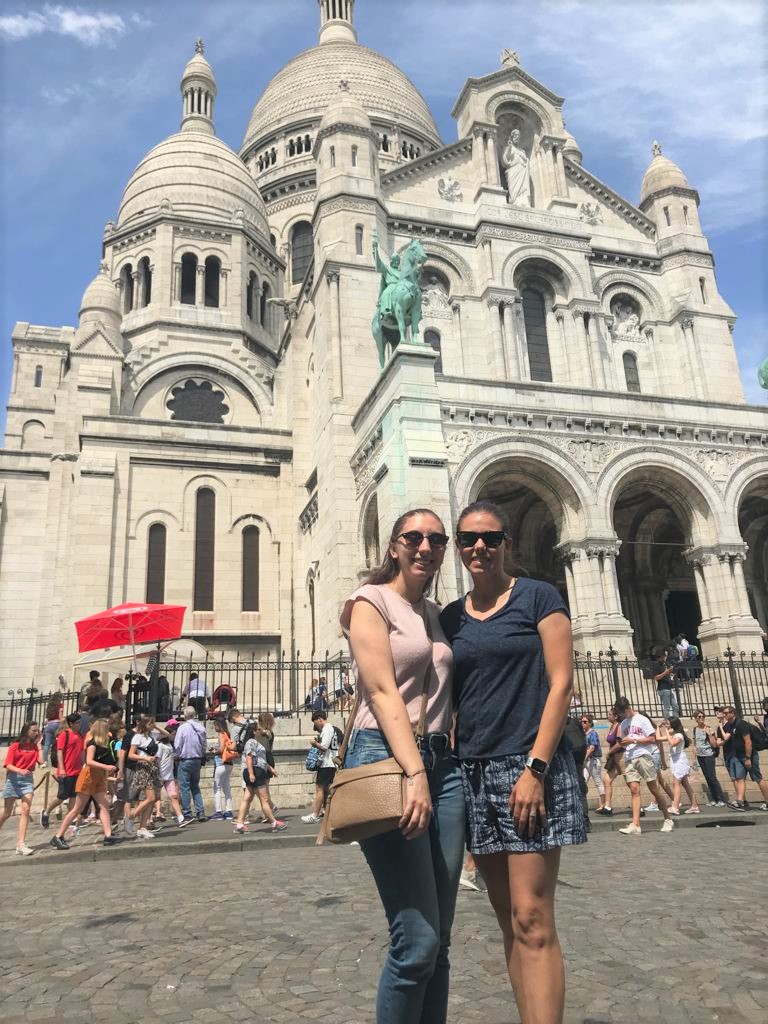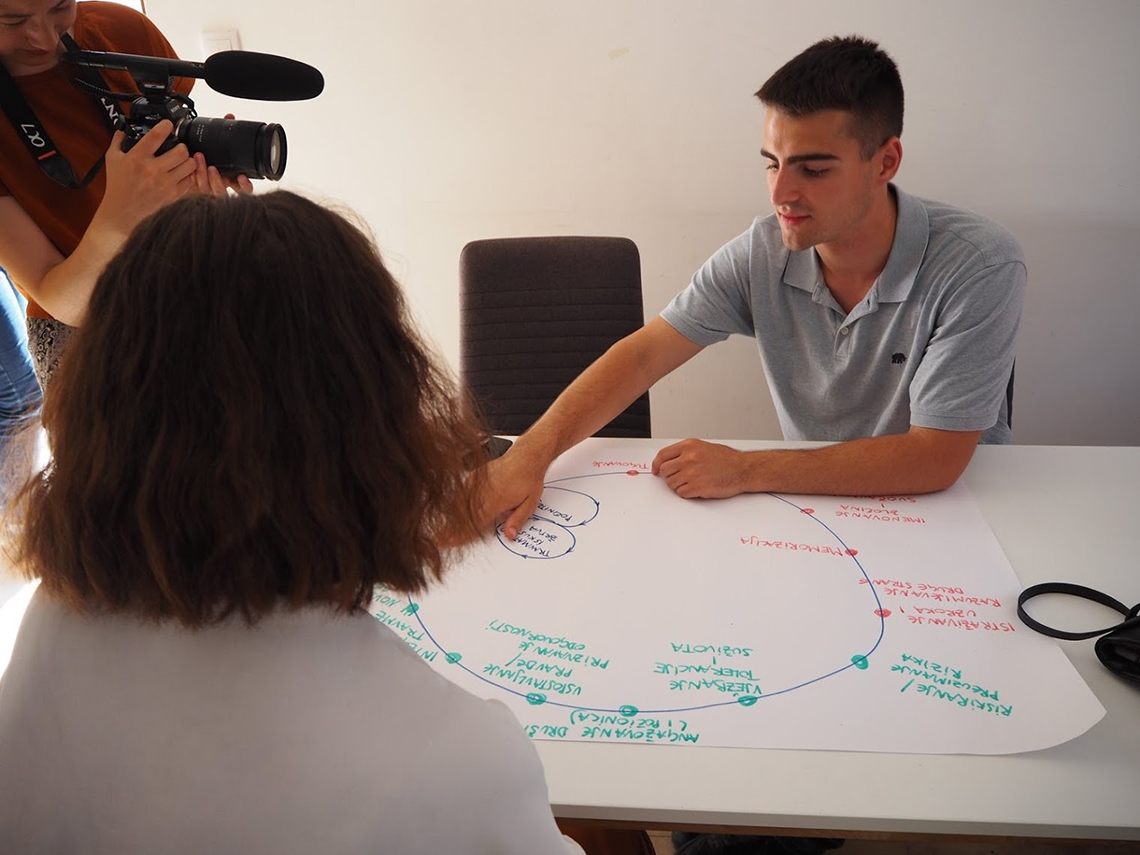Clark undergraduates spend the summer focused on human rights

Clark undergraduates Julie Reed ’21 and Amer Macedonci ’20 may have set out for different parts of the world this summer (Paris and Bosnia), but they set their sights on studying the same topic: human rights. Each was supported in their work by an internship stipend from the Strassler Center for Holocaust and Genocide Studies Undergraduate Program.

At the American University of Paris, Reed enrolled in “Politics of Human Rights” — a course that satisfied her long-standing interest in human rights and conflict resolution and also complemented her on-campus work in international relations.
Political Science Professor Michael Butler, Reed’s faculty adviser, says the opportunity to take this course in France, a location familiar to her, as she has traveled and was schooled in France, came “at a perfect time in Julie’s tenure at Clark and fit well into her program of study.”
Reed had her first glimpse into what it’s like to practice human rights law while studying at the American University of Paris; her professor there shared stories about her own experiences working with refugees and asylum seekers.
“Working with a professor who actually has had hands-on experience in the field of human rights law showed me what I want to spend my life doing — working to protect and promote human rights on an international scale,” Reed says.
While in France, she also embarked on a research project on how terror attacks affect campaign rhetoric regarding immigration and immigration rights. She received additional funding, this time from a Harrington Public Affairs Fellowship, to conduct this research at the Archives Nationales in Paris, and used France as the primary case study.
During her time in Paris, Reed had a mini Clark reunion — she spent time with her high school French teacher, Amanda Greenblatt ’05, who was vacationing in Paris with her own family.
Reed, who is considering a career in human rights work that involves children, may pursue graduate study in Europe. “I know I’ll find my way back to France someday,” she says.
Her work was supported by the Doris Tager Summer Stipend Fund.
Macedonci interned at the Post-Conflict Research Center (PCRC) in Sarajevo and used his communication and foreign language skills to assist with peace education projects in Bosnia and Herzegovina. He worked with Ron Haviv, an Emmy-nominated, award-winning photojournalist and co-founder of the photo agency VII, on a festival for youth correspondents, and served as a translator for documentary photographer Mitar Simikić at one of his exhibitions in his hometown.

Among other things, Macedonci attended a conference hosted by the World Bank and collected petition signatures for an anti-smoking initiative. The psychology major also spoke with individuals at the Association of War Victims of Foca about the cycles of psychological trauma recovery.
Macedoni is continuing to work with Sarajevo-based NGOs to interview parents whose learning-disabled children have been discriminated against by the Bosnian educational system.
According to PCRC founder and President Velma Šarić, Macedonci “played a pivotal role in reaching out to the organizations and parents of these children to set up meetings and interviews.”
“In the beginning, I was aware that specific steps could be taken to expand transitional justice and coexistence in post-conflict societies, but to comprehend the concomitant factors and play a significant role in the process myself was genuinely extraordinary,” wrote Macedonci. “Towards the end, I began to realize how my experience and growing desire to understand a region’s history and present state significantly contributed to my abilities to work with others professionally in this field.”
Macedonci’s work was supported by a stipend from the Arthur and Rochelle Belfer Fund.
“We are delighted to be able to support their summer experiences,” wrote Professor Shelly Tenenbaum, chair of the Sociology Department and coordinator of undergraduate activities in Holocaust and genocide studies.
Clark’s Holocaust and Genocide Studies program has offered summer internship stipends every year since 1999. Students are awarded the internship stipend on the basis of their academic record and internship proposal.


